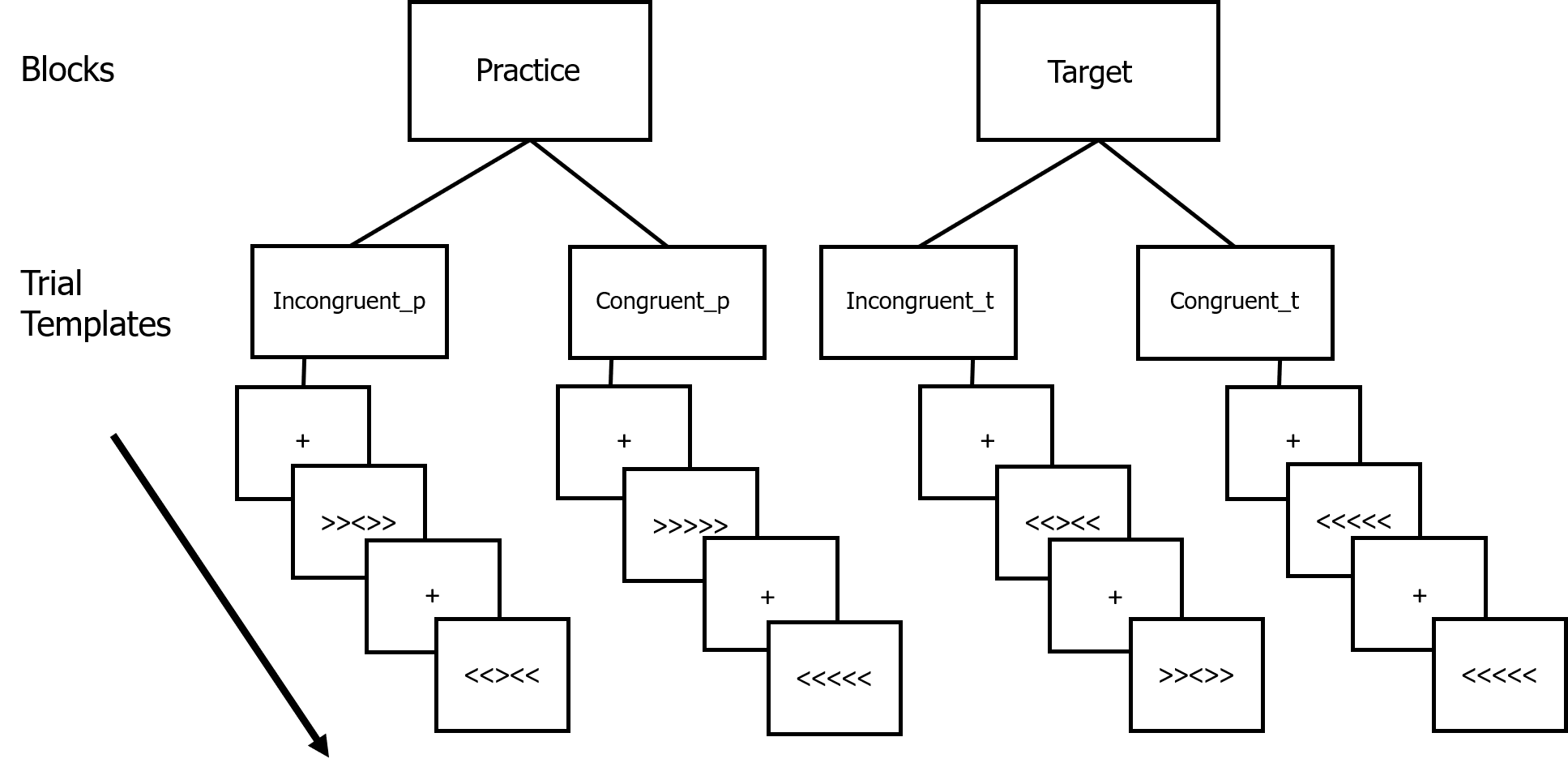Overview¶
Within procedure, trial templates are organized into blocks or groups. Procedure defines how trial templates are presented within blocks, as well as how the blocks are presented.
Below is an illustration of the organization of an experiment on FindingFive. Blocks constitute the highest level of organization, which contain trial templates, which further contain stimuli and responses. Trial templates control the presentation of the stimuli (in the image, these fall along the black arrow). Procedure controls the presentation of both the trial templates (e.g., how should incongruent and congruent trials be distributed within a block) and the presentation of the blocks themselves (e.g., should the practice block precede the target block).

Thus, procedure controls top-level experimental design elements (e.g., block randomization, conditional branching, participant grouping) that are critical to many research paradigms.
More concretely, this top-level control is accomplished via two properties of procedure: "blocks" and "block sequence". Blocks define the trials that will be displayed, and block sequence determines the presentation order of the blocks. Please see the Block Sequence and Basic Block pages for more information on how to use these properties.
Special Procedure-wide Properties¶
language¶
- Definition: Force the display language of an experiment to be a specific one.
- Possible values: ISO 639-1 language codes, also known as two-letter language codes. A detailed list can be found here: https://en.wikipedia.org/wiki/List_of_ISO_639-1_codes
- Default: no default values
Note
Normally, the display language of an experiment is automatically set to the default language of the participant's browser, if a translation for the language exists. This property allows researchers to override that automatic detection and use a chosen language regardless of the participant's browser settings.
progress_bar¶
- Definition: Toggle on or off the progress bar of an experiment.
- Possible values:
true(default by omission) orfalse - Default:
true
Note
For some experiments, it might be necessary for participants to be unaware of the overall progress of the experiment. This feature allows researchers to hide the progress bar to achieve that goal.